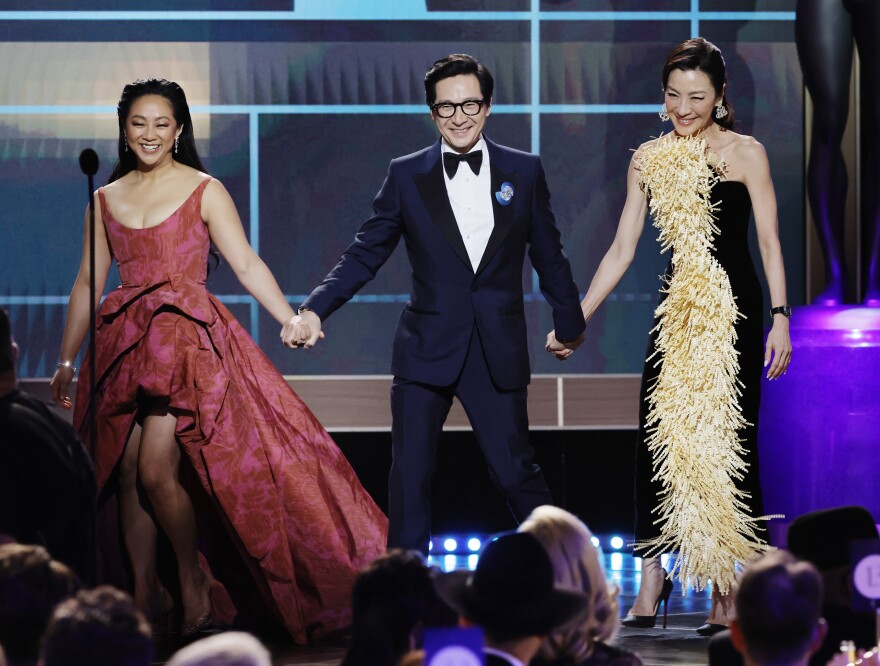No matter who takes home the gold statuettes on Sunday night, 2023 will be remembered as a watershed year for Asian actors at the Oscars.
With four nominations — for Michelle Yeoh (actress in a leading role), Ke Huy Quan (actor in a supporting role) and Stephanie Hsu (actress in a supporting role), all from Everything Everywhere All at Once, and Hong Chau (actress in a supporting role) for The Whale — more Asian performers have been recognized by the Academy of Motion Picture Arts and Sciences than in any single year in its history.
It's been a long wait for Yeoh and Quan, both of whom made their onscreen debuts in 1984 — Yeoh as a young teacher in The Owl vs. Bumbo, the first of many martial-arts-based films she made before achieving international stardom in Crouching Tiger, Hidden Dragon; Quan as the intrepid adolescent Short Round in 1984's biggest worldwide box-office hit, Indiana Jones and the Temple of Doom.

Yeoh, who hails from Malaysia, is only the second Asian actress nominated for a leading role, with Merle Oberon's nod for 1935's The Dark Angel had stood alone for almost nine decades. Oberon's background (South Asian and Māori) wasn't widely known publicly until she died in 1979.
The previous peak year for Asian performers was 2004, with nominations for House of Fog actors Ben Kingsley and Shohreh Aghdashloo (respectively Indian and Iranian) and The Last Samurai's Japanese star Ken Watanabe.

Everything Everywhere All at Once's writer-director Daniel Kwan, who is half of the directing duo (with Daniel Scheinert) known as Daniels, becomes the 13th Asian filmmaker nominated in both the writing and directing categories. He is only the third Asian director (after Parasite's Bong Joon Ho and Nomadland's Chloé Zhao) to be nominated in all three top categories — Best Picture, Director, and Screenwriter.
Other Asian talents recognized this year include Nobel Prize winner Kazuo Ishiguro for his screenplay for Living, an adaptation of Akira Kurosawa's Ikiru (To Live), and Domee Shi, who directed Pixar's animated feature Turning Red.
In other respects, 2023 represents something of a step back from diversity for the Motion Picture Academy, with no Black actors nominated for lead performances and no women feature directors nominated.
Copyright 2023 NPR. To see more, visit https://www.npr.org.




